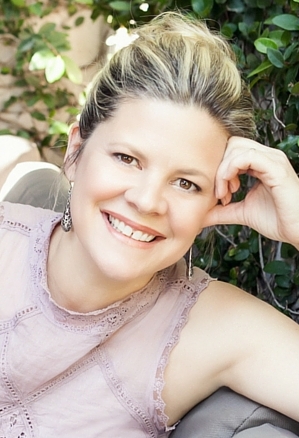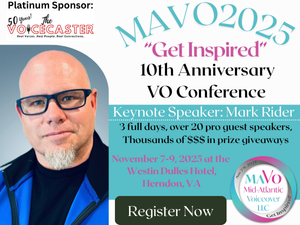|
VOICE ACTING In Remotely Directed Voice-Over Sessions, Be Easily Directed & Don't Talk Between Takes! January 11, 2019  Reprinted with permission from the author's original blog here. Reprinted with permission from the author's original blog here.By Natasha Marchewka Voice Actor & Course CreatorRemotely directed voice-over sessions. Can you manage them? I used to get nervous about them - mostly because in "phone-patch" sessions (the client simply listens in on the phone),
I was never sure if we would be able to hear each other clearly. Further, if I'm being directed AND recording the session, I worried
about technical glitches on my end. What if I had to record it all again,
after-the-fact?! That would not be cool. I'd look extremely
unprofessional. When in the booth alone, the isolation is freeing! You have the
ability to do as many takes as necessary. Directed sessions, on the other
hand, mean not only reading as cleanly and mistake-free as possible,
but also to being both open to direction and being directable. Those are two major necessities for working voice talent. BEING 'CONNECTED' IS HUGE ASSET However, as the bar continues to be raised in the voice-over industry,
being a "connected" studio is a huge asset. Being connected provides
the technical capacity for someone to both direct you and record on the
other end. This frees up the voice actor considerably. And, there are a
handful of ways to be connected – for instance, via ISDN, ipDTL, Source-Connect and a few more.
Skype is also common, but doesn't make you a "connected" studio,
because it doesn't allow the producers to record you on the other end. I purchased the Source-Connect system for my studio six months ago, and while I have yet to use it, ironically, I've had more directed sessions in the past six months than ever in my 13 years in voice-over. Generally, these sessions have used my clients' ipDTL links or Skype. LISTEN AND CHANGE EASILY And thankfully, I LOVE feedback. I suppose that's one of the reasons I am therefore, directable. I
listen well and make changes easily. Plus, I'm able to leave my ego
aside and hear feedback without worrying that I'm "doing it wrong"
- knowing it simply needs additional direction. Perhaps this increase in directed sessions came from a message to the universe that I'm open to doing them when I purchased Source-Connect. Or perhaps it's a result of
working on projects with more and more people needing to provide input. I
don't know. STOP TALKING! What I do know, however, is how to manage a directed
session.
The number one tip I can give to a voice actor in their booth on a directed session is to: STOP TALKING. What? A voice actor? Stop talking? Yes.
And here are five reasons why:
YOU'RE A PROFESSIONAL Professionalism is paramount in directed sessions. If there is ever a
moment to be on your best behavior it is on a directed session, either
in your own booth or at someone else's studio. While there are a lot of
clowns in our business, there is a time to know when to be entertaining
(within the copy!) and when to play the straight guy (in every interaction). ------------------------- ABOUT NATASHA Broadcast and non-broadcast, Natasha has recorded 10,000+ commercials and voice-over projects over the past 13 years, including Adventures by Disney, ZipRecruiter, and Electrolux. With a Bachelor's degree in Radio Television Arts, several years of singing jazz in New York City, and many, MANY jobs paying her dues, she started her voice-over business as an eager entrepreneur. She's also a prolific list maker, which has helped her move her business and family to three different countries. Her course offerings from Master VO To-Do List helps working voice talent get their business on track. Email: natasha@natashamarchewka.com Voice-Over Web: http://natashamarchewka.com Master VO To-Do List Web: http://votodolist.com ALSO ENJOY THESE VOICE ACTING ARTICLES |
As of the NEW website launch, 03/22/2012










I got lucky with some great directors early on. That led to attitude of letting the director direct and trusting where they wanted to go. Turns out giving your director the lead and fully accepting what they want is a huge stumbling block I whizzed right by.
But oh, that silence after takes! I fell into the bad habit of filling that space with anxiety and negative feedback, preparing for what was sure to follow from the director. I learned to use those moments to instead take a slow, deep breath, letting go of the last take and refocusing on attentive listening of the direction that does follow.
Now I look forward to directed sessions – they almost always save time and end up with a better final product.